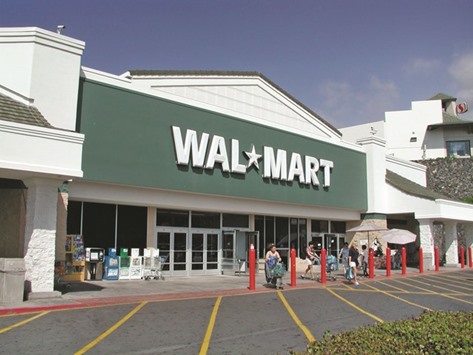Indian Prime Minister Narendra Modi, long an opponent of global retail giants, is finally giving them an opening in India.
Modi’s government is finalising details of a policy to allow 100% foreign investment in marketing of food made in India. Companies like Wal-Mart Stores and Carrefour will be allowed to set up shops as long as they only sell locally produced food, according to Rajinder Chaudhary, a spokesman for the Department of Industrial Policy and Promotion.
“It’s not really a backdoor entry,” Chaudhary said.
“Earlier there was condition of 30% local sourcing – now it is 100% local sourcing.” The move represents a shift for Modi, whose Bharatiya Janata Party counts small mom-and-pop retail stores among their most ardent supports and opposed the previous government’s move to allow foreign investment in multi-brand retail. The latest step marks a softening of Modi’s stance, and raises the possibility that previous obstacles such as state-by-state approvals to open stores will be removed.
Modi is looking to regain support among farmers as distress rises from the first back-to-back droughts in about three decades. He introduced a slew of measures to bolster the rural economy in his budget to double farmer incomes by 2022 as he looks to firm up votes before key state elections.
“It is a clever and a devious move to split the retail flanks,” said Mohan Guruswamy, a former finance ministry official and chairman at New Delhi-based think tank Centre for Policy Alternatives.
Since India opened the retail sector for foreign investment in 2012, only Tesco has sought a licence to run supermarkets selling multiple brands. It has a joint venture with Tata Group unit Trent Hypermarket. “India is a market with significant long-term potential,” a Tesco spokesperson said in response to an e-mail query.
Wal-Mart shares closed 0.1% higher at $69.10 in New York on Monday. Tesco rose 0.5% to 190.90 pounds in London, while Carrefour rose 0.7% to €24.03 in Paris.
Wal-Mart in 2013 scrapped a 50-50 joint venture with billionaire Sunil Mittal’s Bharti Enterprises ending its plans to open multi-brand supermarkets. It now operates 20 wholesale stores, which is open to foreign investment.
Wal-Mart plans to study details of the government’s new policy closely when they are released, according to Rajneesh Kumar, vice president and head of corporate affairs at Wal-Mart India.
The move “is very progressive and will help in reducing wastage, helping farm diversification and encourage industry to produce locally within the country,” Kumar said. “This far reaching reform will benefit farmers, give impetus to food processing industry and create vast employment opportunities.” Carrefour, France’s biggest retailer, announced in 2014 that it would exit India. An e-mail sent to the press relations team at Carrefour went unanswered.
Under the earlier multi-brand retail policy announced by the previous Congress government, joint ventures have to buy 30% of manufactured products from small- and medium-sized local businesses with less than $2mn invested in factories and machinery. They also need state approvals to set up stores.
Chaudhary declined to say if states will need to approve foreign retail outlets under the new policy.
“That will be part of the fine-print,” he said. “The exact details of the policy are being worked out.”

Indian government will allow companies like Wal-Mart Stores and Carrefour to set up shops in the country as long as they only sell locally produced food, an official said yesterday.
